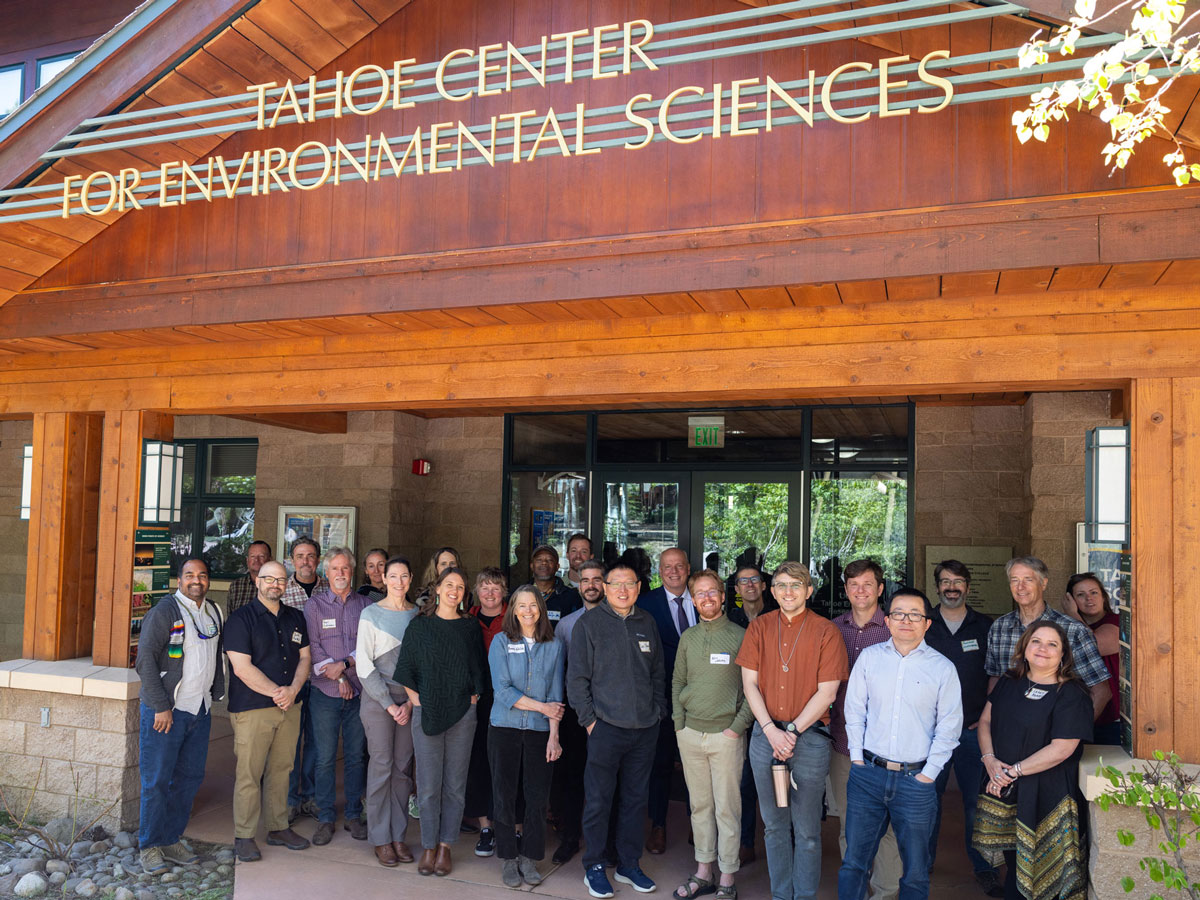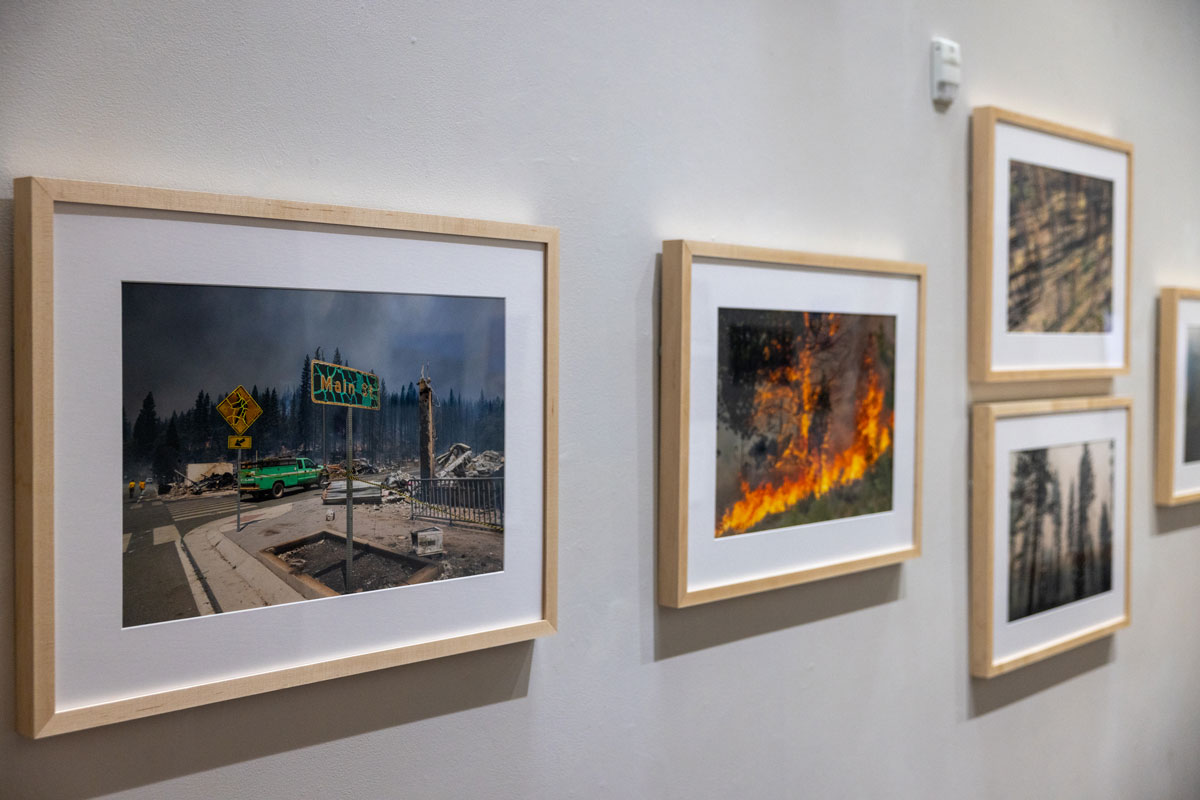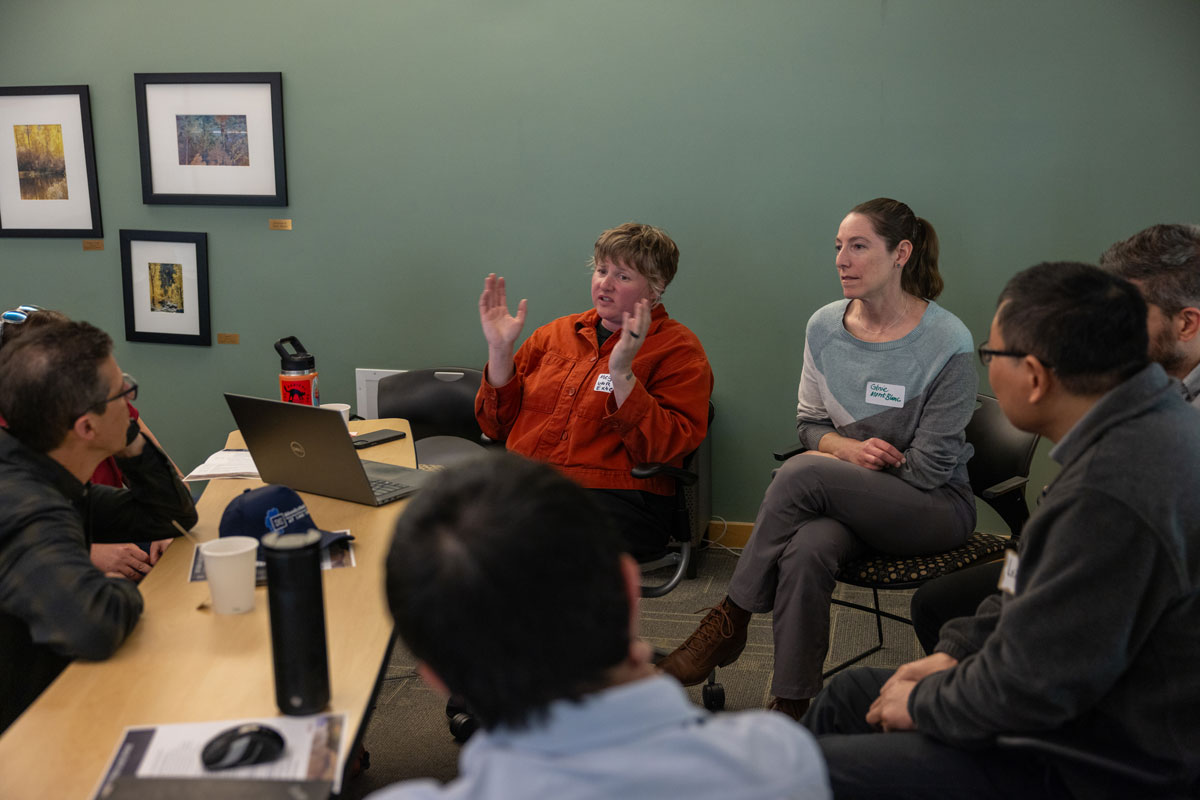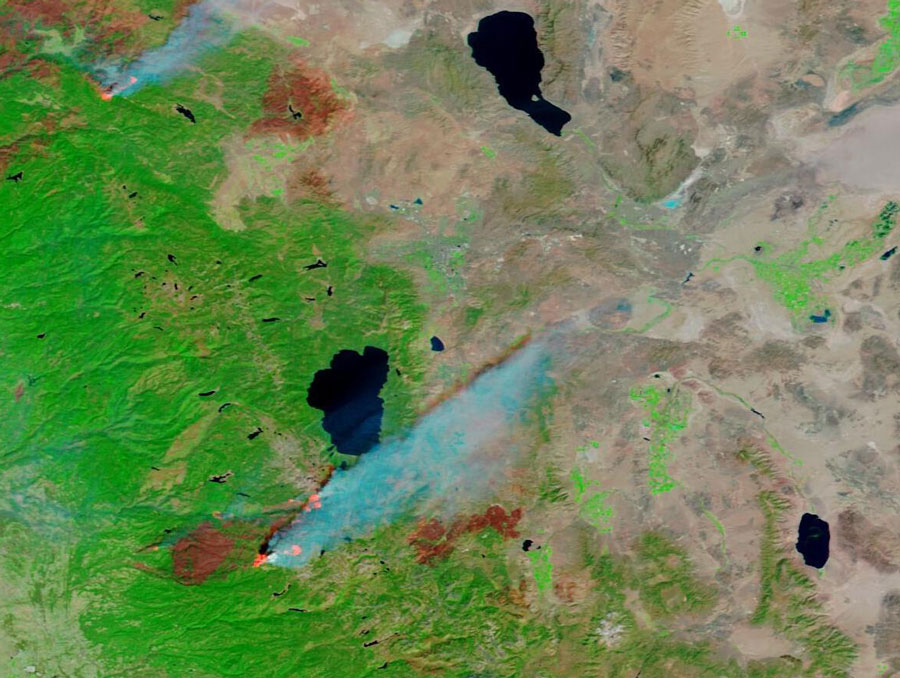Wildfire is one of the pressing issues facing society and our environment today, in the Lake Tahoe Basin and around the world. Faculty from the University of Nevada, Reno across disciplines are meeting today, May 21, through Wednesday, May 22 at the University of Nevada, Reno at Lake Tahoe to discuss new research and potential solutions to the world’s growing wildfire challenges.
“We have exceptional faculty and students at the University of Nevada who are answering the big questions related to wildfire and wildfire management,” Sudeep Chandra, Foundation Professor and Director of the Global Water Center said. “This collaborative retreat was completely faculty-driven so we can understand the cutting-edge areas of science and community engagement that can lead to problem-solving in this topical area. We all understand just how critical the sharing of information, research and perspectives will be in solving climate change-induced impacts of wildfires, and that is what we are doing here today.”

Faculty, researchers and scholars from across the University of Nevada, Reno met at the Wayne L. Prim Campus in the Tahoe Center for Environmental Sciences building to discuss wildfire management solutions.
Sessions include presentations by faculty and researchers on environmental philosophy, extreme fire behavior, indigenous wildfire management practices, wildfire impacts on drinking water, community wildfire education, art expression and more.

Faculty will tour an art exhibit in the Prim Library curated by Art, Art History and Design faculty member and the department's Coordinator of Digital Labs and Faculty Research Scott Hinton as part of the retreat. The exhibit, Convergence Zone, visually explores the impact of wildfire on landscapes and includes both fine art and research works. The exhibit, on the third floor of the Prim Library, will be open to the public through August 30, 2024.
Central to the two-day retreat is a series of collaborative workshops where participants bring their disciplinary strengths to develop solutions to wildfire challenges.

“Real solutions happen at the periphery of a field, often where one field overlaps with another,” Lesley Morris, one of the organizers and associate professor in Rangeland Ecology and Management, said. “Interdisciplinary collaborations are what we are trying to facilitate today and tomorrow at the University of Nevada, Reno at Lake Tahoe. We all need to move out of our silos to work together on solving this issue. These collaborations are what will help us protect and better manage Lake Tahoe and other places around the world where the risk of extreme wildfire exists.”
The 2024 Faculty Wildfire Retreat received funding from the College of Engineering, University of Nevada, Reno at Lake Tahoe, Ozmen Institute for Global Studies, and Global Water Center, the College of Agriculture, Biotechnology & Natural Resources, and the Departments of Geography and Natural Resources and Environmental Sciences.












